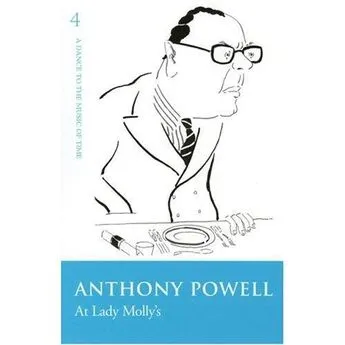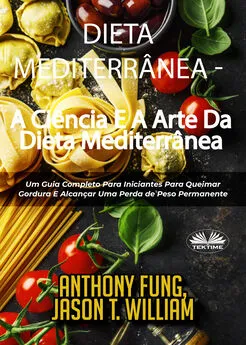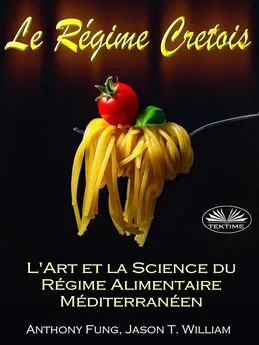Anthony Trollope - Autobiography of Anthony Trollope
- Название:Autobiography of Anthony Trollope
- Автор:
- Жанр:
- Издательство:неизвестно
- Год:неизвестен
- ISBN:нет данных
- Рейтинг:
- Избранное:Добавить в избранное
-
Отзывы:
-
Ваша оценка:
Anthony Trollope - Autobiography of Anthony Trollope краткое содержание
EBook of Autobiography of Anthony Trollope by Anthony Trollope (www.anthonytrollope.com)
Autobiography of Anthony Trollope - читать онлайн бесплатно ознакомительный отрывок
Интервал:
Закладка:
that though there was possible to her a way out of perdition, still
things could not be with her as they would have been had she not
fallen.
"There arises, of course, the question whether a novelist, who
professes to write for the amusement of the young of both sexes,
should allow himself to bring upon his stage a character such as
that of Carry Brattle. It is not long since,--it is well within the
memory of the author,--that the very existence of such a condition
of life as was hers, was supposed to be unknown to our sisters and
daughters, and was, in truth, unknown to many of them. Whether that
ignorance was good may be questioned; but that it exists no longer
is beyond question. Then arises the further question,--how far the
conditions of such unfortunates should be made a matter of concern
to the sweet young hearts of those whose delicacy and cleanliness
of thought is a matter of pride to so many of us. Cannot women,
who are good, pity the sufferings of the vicious, and do something
perhaps to mitigate and shorten them without contamination from the
vice? It will be admitted probably by most men who have thought
upon the subject that no fault among us is punished so heavily
as that fault, often so light in itself but so terrible in its
consequences to the less faulty of the two offenders, by which a
woman falls. All of her own sex is against her, and all those of
the other sex in whose veins runs the blood which she is thought
to have contaminated, and who, of nature, would befriend her, were
her trouble any other than it is.
"She is what she is, and she remains in her abject, pitiless,
unutterable misery, because this sentence of the world has placed
her beyond the helping hand of Love and Friendship. It may be said,
no doubt, that the severity of this judgment acts as a protection
to female virtue,--deterring, as all known punishments do deter, from
vice. But this punishment, which is horrible beyond the conception
of those who have not regarded it closely, is not known beforehand.
Instead of the punishment, there is seen a false glitter of gaudy
life,--a glitter which is damnably false,--and which, alas I has
been more often portrayed in glowing colours, for the injury of
young girls, than have those horrors which ought to deter, with
the dark shadowings which belong to them.
"To write in fiction of one so fallen as the noblest of her sex,
as one to be rewarded because of her weakness, as one whose life
is, happy, bright, and glorious, is certainly to allure to vice
and misery. But it may perhaps be possible that if the matter be
handled with truth to life, some girl, who would have been thoughtless,
may be made thoughtful, or some parent's heart may be softened."
Those were my ideas when I conceived the story, and with that
feeling I described the characters of Carry Brattle and of her
family. I have not introduced her lover on the scene, nor have I
presented her to the reader in the temporary enjoyment of any of
those fallacious luxuries, the longing for which is sometimes more
seductive to evil than love itself. She is introduced as a poor
abased creature, who hardly knows how false were her dreams, with
very little of the Magdalene about her--because though there may
be Magdalenes they are not often found--but with an intense horror
of the sufferings of her position. Such being her condition, will
they who naturally are her friends protect her? The vicar who has
taken her by the hand endeavours to excite them to charity; but
father, and brother, and sister are alike hard-hearted. It had
been my purpose at first that the hand of every Brattle should be
against her; but my own heart was too soft to enable me to make
the mother cruel,--or the unmarried sister who had been the early
companion of the forlorn one.
As regards all the Brattles, the story is, I think, well told.
The characters are true, and the scenes at the mill are in keeping
with human nature. For the rest of the book I have little to say.
It is not very bad, and it certainly is not very good. As I have
myself forgotten what the heroine does and says--except that she
tumbles into a ditch--I cannot expect that any one else should
remember her. But I have forgotten nothing that was done or said
by any of the Brattles.
The question brought in argument is one of fearful importance. As
to the view to be taken first, there can, I think, be no doubt. In
regard to a sin common to the two sexes, almost all the punishment
and all the disgrace is heaped upon the one who in nine cases out
of ten has been the least sinful. And the punishment inflicted is
of such a nature that it hardly allows room for repentance. How is
the woman to return to decency to whom no decent door is opened?
Then comes the answer: It is to the severity of the punishment alone
that we can trust to keep women from falling. Such is the argument
used in favour of the existing practice, and such the excuse
given for their severity by women who will relax nothing of their
harshness. But in truth the severity of the punishment is not known
beforehand; it is not in the least understood by women in general,
except by those who suffer it. The gaudy dirt, the squalid plenty,
the contumely of familiarity, the absence of all good words and all
good things, the banishment from honest labour, the being compassed
round with lies, the flaunting glare of fictitious revelry, the
weary pavement, the horrid slavery to some horrid tyrant,--and then
the quick depreciation of that one ware of beauty, the substituted
paint, garments bright without but foul within like painted sepulchres,
hunger, thirst, and strong drink, life without a hope, without the
certainty even of a morrow's breakfast, utterly friendless, disease,
starvation, and a quivering fear of that coming hell which still
can hardly be worse than all that is suffered here! This is the
life to which we doom our erring daughters, when because of their
error we close our door upon them! But for our erring sons we find
pardon easily enough.
Of course there are houses of refuge, from which it has been
thought expedient to banish everything pleasant, as though the only
repentance to which we can afford to give a place must necessarily
be one of sackcloth and ashes. It is hardly thus that we can hope
to recall those to decency who, if they are to be recalled at
all, must be induced to obey the summons before they have reached
the last stage of that misery which I have attempted to describe.
To me the mistake which we too often make seems to be this,--that
the girl who has gone astray is put out of sight, out of mind if
possible, at any rate out of speech, as though she had never existed,
and that this ferocity comes not only from hatred of the sin, put
in part also from a dread of the taint which the sin brings with
it. Very low as is the degradation to which a girl is brought when
she falls through love or vanity, or perhaps from a longing for
luxurious ease, still much lower is that to which she must descend
perforce when, through the hardness of the world around her,
she converts that sin into a trade. Mothers and sisters, when the
misfortune comes upon them of a fallen female from among their
number, should remember this, and not fear contamination so strongly
as did Carry Brattle's married sister and sister-in-law.
In 1870 I brought out three books,--or rather of the latter of
the three I must say that it was brought out by others, for I had
nothing to do with it except to write it. These were Sir Harry
Hotspur of Humblethwaite, An Editor's Tales, and a little volume
on Julius Caesar. Sir Harry Hotspur was written on the same plan as
Nina Balatka and Linda Tressel, and had for its object the telling
of some pathetic incident in life rather than the portraiture of a
number of human beings. Nina and Linda Tressel and The Golden Lion
had been placed in foreign countries, and this was an English story.
In other respects it is of the same nature, and was not, I think,
by any means a failure. There is much of pathos in the love of
the girl, and of paternal dignity and affection in the father.
It was published first in Macmillan's Magazine, by the intelligent
proprietor of which I have since been told that it did not make
either his fortune or that of his magazine. I am sorry that it
should have been so; but I fear that the same thing may be said of
a good many of my novels. When it had passed through the magazine,
the subsequent use of it was sold to other publishers by Mr.
Macmillan, and then I learned that it was to be brought out by them
as a novel in two volumes. Now it had been sold by me as a novel
in one volume, and hence there arose a correspondence.
I found it very hard to make the purchasers understand that I had
reasonable ground for objection to the process. What was it to me?
How could it injure me if they stretched my pages by means of lead
and margin into double the number I had intended. I have heard the
same argument on other occasions. When I have pointed out that in
this way the public would have to suffer, seeing that they would
have to pay Mudie for the use of two volumes in reading that which
ought to have been given to them in one, I have been assured that
the public are pleased with literary short measure, that it is
the object of novel-readers to get through novels as fast as they
can, and that the shorter each volume is the better! Even this,
however, did not overcome me, and I stood to my guns. Sir Harry
was published in one volume, containing something over the normal
300 pages, with an average of 220 words to a page,--which I
had settled with my conscience to be the proper length of a novel
volume. I may here mention that on one occasion, and one occasion
only, a publisher got the better of me in a matter of volumes. He
had a two-volume novel of mine running through a certain magazine,
and had it printed complete in three volumes before I knew where I
was,--before I had seen a sheet of the letterpress. I stormed for
a while, but I had not the heart to make him break up the type.
The Editor's Tales was a volume republished from the St. Paul's
Magazine, and professed to give an editor's experience of his
dealings with contributors. I do not think that there is a single
incident in the book which could bring back to any one concerned
the memory of a past event. And yet there is not an incident in it
the outline of which was not presented to my mind by the remembrance
of some fact:--how an ingenious gentleman got into conversation
with me, I not knowing that he knew me to be an editor, and pressed
his little article on my notice; how I was addressed by a lady with
a becoming pseudonym and with much equally becoming audacity; how
I was appealed to by the dearest of little women whom here I have
called Mary Gresley; how in my own early days there was a struggle
over an abortive periodical which was intended to be the best
thing ever done; how terrible was the tragedy of a poor drunkard,
Читать дальшеИнтервал:
Закладка:








